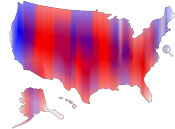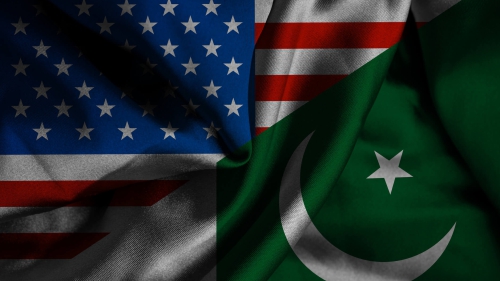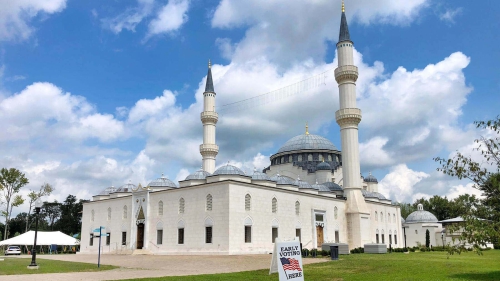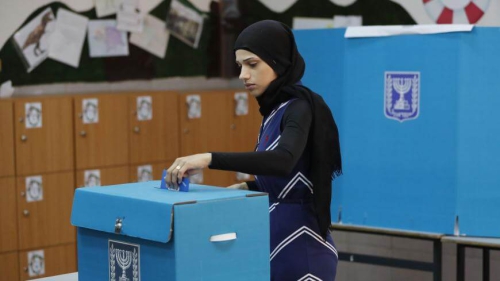Hope For A Landslide On Election Day
 |
With both Democrats and Republicans having fielded armies of thousands of lawyers posed to challenge and/or defend voting procedures, voter eligibility and vote outcomes, there is real concern that the election of 2004 could end up more conflicted and contentious than the disaster of 2000.
Concerned about the "chaos, uncertainty and lingering hostility that a lawsuit-driven Presidential election would inevitably produce," Theodore Olsen, the attorney who represented the Bush campaign before the US Supreme Court in 2000, recently wrote that the "best" outcome in 2004 would be for the "American electorate to reelect George W. Bush decisively, or to defeat him overwhelmingly."
Closing in on Election Day, neither of these two scenarios appears likely. Polls both on the national level and in key battleground states show the race tightening up, rather than opening in favor of either Bush or Kerry.
The Nader candidacy has all but evaporated, with the Independent now appearing to receive only about 1% nationwide. When pushed by pollsters, the small number of remaining undecided voters is splitting their votes between the President and his Democratic challenger. As a result, with Election Day fast approaching, the outcome appears clear in only about 29 of the 51 states (including the District of Columbia). In the remaining 22, the race is too close to call, with about eight of these appearing to be statistical dead heats.
Given this, attention will once again be focused on voting procedures and herein lies the problem. We learned too much about the fallibility of the process in 2000. And while cries for reform echoed across the land in the aftermath of Florida 2000, in the intervening years too few real changes were made and major problems remain. In several states there are concerns that new computer voting machines, without a hard copy paper trail, may break down and be contested. Outmoded punch card systems (that produced the now famous "hanging chads" of 2000) are still in operation in some districts. And some questions have been raised about the counting of what are called "provisional ballots," which are given to voters whose names do not appear on the voter roles. There is concern that in too many instances in the past, these "provisionals" have not been validated and tallied but have simply been discarded. In 2004 this problem may grow. One of the reforms passed by Congress in 2002 actually encourages the use of these provisional ballots. In the case of a close election, the battle over counting them may become quite heated and the subject of court challenges.
In addition, some immigrant rights groups and civil rights organizations have taken issue with what they describe as Republican efforts to suppress the vote in targeted districts across the United States. In some cases, for example, Republican attorneys have challenged the registrations of new Hispanic voters (presumed to be Democratic voters), and are demanding that these new voters bring proof of their right to vote to the polls before being allowed to cast a ballot. This practice, it is feared, may intimidate some of these new voters, causing them to stay away from the voting polls on Election Day.
If the vote is close in any of the key battleground states and no candidate clearly and decisively wins enough states to assure him the 270 electoral votes needed to be declared President, court challenges like Florida 2000 many once again shape the post-election period. In fact, a recent poll shows that fully one-half of all US voters actually expect this to occur.
Like Mr. Olsen, I fear such an outcome. The wounds of 2000 have not healed and the polarization brought on by the war in Iraq and the divisiveness of our post-911 political discourse has combined to produce a dangerous new situation in American political life.
We, the purveyors of democracy and tolerance to the world, have some lessons to learn at home.
It has often been said that elections are like making sausage. The process and the ingredients are messy, but the final product can be a treat. In 2000, however, we learned too much about just how messy the process could be. With the very legitimacy of the process and its outcome at risk, let's hope for a landslide, so we are not once again tested.
For comments or information, contact [email protected]
Dr. James J. Zogby is the President of Arab American Institute
Related Suggestions
Today Nov 2, 2004 I voted, but yet as a Muslim and ethnic minority I was verbally assulted by an unknown party in the parking lot at the voting polls (with no police in sight.. ) and intimidated so that I might be discouraged and not vote. When I endured this, I got in line proudly with my new voters registation card,and again had to go through a trial of being denied to vote when I persisted and exclaimed that my voters registation card was printed and approved by the local governing authorities, and not printed by the Taliban or Osama, the woman named Carol then flipped the voters registration list over , and there is was my beautiful Muslim name all hand written in and a number 285 was assigned next to it. Previously they could not find me, and I mysteriously had a voters regisration card from a legitimate local government. So how can we insure others' the freedom to vote in Iraq and Afganistan a "Democracy" when we cannot insure its' citizenry a proper respect and support for exercising our civil rights/civil duty to vote on election day and not be intimidated? Hummm..
I ponder really who are the real bad guys??
Thanks Teresa L.
Voting in Fairfax Virginina
The Zoghby family is a respectable family. Honest Christian Arabs. A free Lebanese family that respects Islam & good Muslims. John & James are well known for their integrity among us Arabs.
I hope that some ignorant Muslims among those that live in the US. I personally live in Canada.
A country that is way socially advanced than America. Its health care system testifies to that.
Voting for Bush is a huge sin; it's simply treason.
Voting for Nader is good but useless
Voting for Kerry is voting for the least of the two evils
Not voting for Kerry is a crime against Muslims.
So vote for Kerry to make sure that to minimise the horrors of the Crusaders; save some Muslim lives & throw the Bush dynasty in the history bins.
Allah bless you James!

















